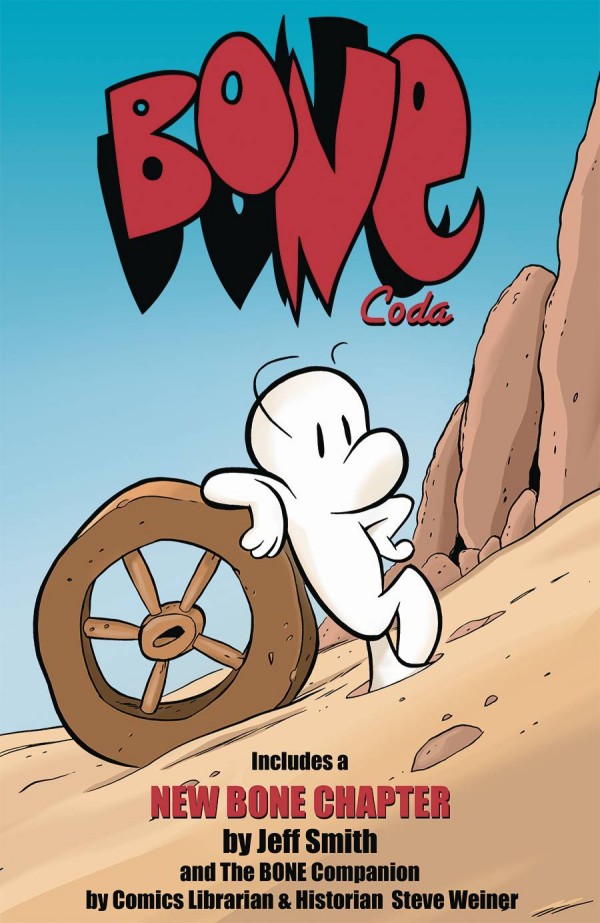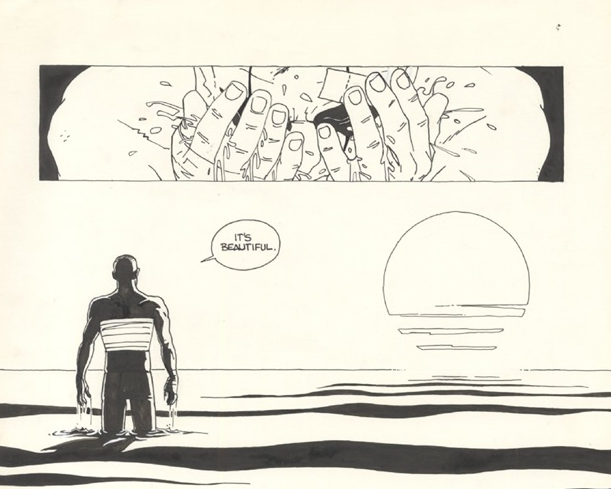 Written by Megan Kelso
Written by Megan KelsoIllustrated by Megan Kelso
Fantagraphics
In world that's not all that different from the one we know, a country is torn in two by differing philosophies. This is the story of an aggressive, industrial north, a rural, slower south, and a family that gets caught in between.
Bridgette is a young woman who wants more than her life as an understudy for her grandmother in the apothecary. She's infatuated with a young soldier from the north, and everyone knows she'll leave to follow him. Before she goes, however, Bridgette must learn the history of her country, however sad that may be. Told from various perspectives (a really nice touch, I thought), we see that the truth is not simple at all and finding a way in this minefield of tragedy will not be an easy task.
Bridgette herself finds this out, as her life changes with every step she takes. The war between the factions has impacted on her family for generations, and as we eventually learn, she is doomed to the same fate. As long as the sides cannot agree or leave each other alone, there will always be more Bridgettes left to find their way in a world that has quite a bit of collateral damage.
There are quite a few things to like about Artichoke Tales, such as Kelso's design of characters that are almost but not quite human. Similarly, the things that they do have echoes in human history but do not slavishly copy them. There is just enough to give a sense of the familiar, but I don't feel like she's trying to echo a particular time period or war, except for one thing that's probably peculiar to me as a reader.
I'm very much into the history of the US Civil War, and there are a few similarities that brought up ideas I wasn't comfortable with. The war in this book is between the north and the south, with the north being more industrious and aggressive while the south is rural and agrarian. They just want to be left alone by the north to live life the way they see fit. It's probably harmless enough, but when I see something like this, my mind turns to the flimsy excuses used by the protectors of slavery to keep their immoral lifestyle going and later generations that use "states' rights" as a way to legislate in discriminatory ways.
I'm sure that Kelso didn't mean for that to happen, and I highly doubt that very many others would pick up on it. The southerners in her book certainly don't do anything evil or wrong. If anyone could make the "leave us alone" argument, it's definitely the characters in the book. I just found it a bit jarring, and it goes to show that when they say that different readers find different things within the same book, it's totally true.
One of the best things about the book is that while the war is always around, it's never the focus. We only see a few scenes of the war itself, as a matter of fact. The point is that these are real people (well, relatively speaking) who must try to eke out a living, both north and south. Nothing they do can change that the leaders of the north want to take over the south, even if there's nothing to gain by it. They can only keep gathering roots or taking jobs as they're available, even if that means being a part of the machine that drives all the sorrow. It's a sad commentary on the state of their world--and our world, too. Just as in the real world we can't solve the problem of conflict, neither can Kelso's characters.
I was very impressed by the amount of concepts going on within the book. We have the conflict of economic interests, the desire to keep the military going despite the cost, rebellion from tradition, old religious rites that go on despite all other issues, and dealing with cultural differences that made me think of what it might be like for a person who's from either side of say, the Sunni and Shiite religious divide, to try and make a life together. How many borders exist in this world, both clear and invisible, that lovers cross every day? How many Holy sites are lost forever to those who need them, due to sectional strife? One could easily spend hours thinking of the hard concepts Kelso brings into the book without ever hitting the reader over the head with any of them. It's a sign of her storytelling ability that we get all of this without it ever feeling like she's preaching to me. I wish more writer/artists taking on hard subjects could approach them in the same way that Kelso does.
If there was one thing I wish Kelso had done differently, it would have been to differentiate the characters a bit more than we saw in this graphic novel. I occasionally had a hard time telling who was who, without flipping back to narrative stretches where the people involved were named. The north and south get different noses, but that's about it, except for the Queen, who is born special and has a different shape entirely. I did enjoy Kelso's linework, which was very pretty in a Craig Thompson-like way. I just wish she'd done a bit more variety as the book went on in terms of who was who.
Artichoke tales, at its heart, is about how complex the world is, with no one quite able to figure things out. It's a message that makes for a sad but satisfying read. Despite a few qualms with the idea of a rural south being the wronged party (it's an allusion I just can't shake, due to my extensive study of Civil War history), I thought this was a well-crafted book that shows the human side of a conflict. It's a sad tale, but one worth reading.







